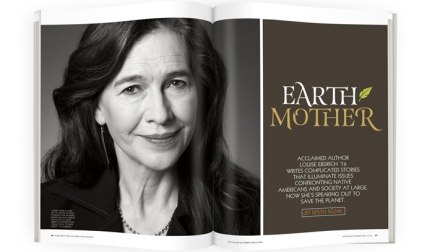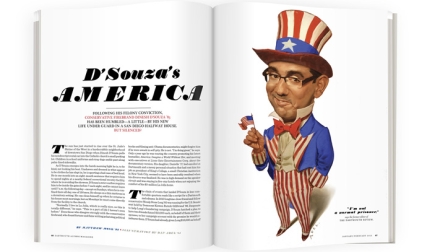Although Nelson Rockefeller died in 1979, the legacy of the former governor of New York and vice president of the United States remains remarkably relevant. In the just-published and highly acclaimed On His Own Terms: A Life of Nelson Rockefeller, biographer Richard Norton Smith highlights 15 roles that defined the original “Rocky.”
1. Builder A Dartmouth undergrad when his father put him on the board of the Rockefeller Center, a national model of urban development, Rockefeller went on to change the face of New York through projects such as Roosevelt Island, Battery Park City and the Empire State Plaza.
2. Art Pioneer Rockefeller saved the Museum of Modern Art with a $100,000 contribution during the Depression. A man of varied tastes, he encouraged MoMA’s validation of folk art and promoted both modern art and indigenous art to a skeptical nation.
3. Internationalist With the financial backing of his father, Rockefeller successfully fought to keep the United Nations from moving to Philadelphia. With his favorite architect, Wallace Harrison, he supervised the design and construction of the new headquarters on the East Side of Manhattan.
4. Defense Advocate Rockefeller stood his ground against most U.S. representatives as well as the Soviet delegation to enact Article 51 in the U.N. charter at its opening congress. This directive guaranteed member nations the right to form mutual security alliances on a regional basis and laid the foundation for NATO and similar pacts.
5. Compassionate Capitalist In the intensely competitive atmosphere of the Cold War, Rockefeller argued that material improvement and political freedom both required a new kind of capitalism. To prove the point he undertook his own foreign aid program in Latin America, putting self-interest to work for the public good.
6. Defender of Women’s Rights Rockefeller supported the 1970 repeal of New York State’s ban on abortions. In 1972, when the state legislature tried to reinstate the ban, Rockefeller vetoed the legislation in defense of every woman’s right to the procedure. The U.S. Supreme Court handed down its Roe v. Wade ruling, legalizing abortion, nine months later.
7. Supporter of Culture To spotlight New York’s cultural riches, Rockefeller established the nation’s first state arts council. In 1965 the federal government followed suit and created the National Endowment for the Arts.
8. Federalist Rockefeller set an example of pursuing conservative ends through liberal means by encouraging activist government. To establish Adirondack State Park, Rockefeller balanced wilderness protection with the economic needs of local residents—establishing a national model of sensitive land-use management.
9. Iconic Republican Despite the phrase “Rockefeller Republicanism,” its namesake’s hybrid of fiscal restraint and social conscience reflects the instincts of Americans who are turned off by party politics. Personally committed to civil rights—and Martin Luther King Jr.—Rockefeller said there was no room in the GOP for “preachers of racism or extremists of reaction.”
10. Friend of Teachers—and Students Rockefeller transformed a handful of teachers colleges and technical schools into SUNY, the world’s largest public university system. Then he filled its classrooms by tripling student financial aid.
11. Supporter of Public Transportation In 1968 Rockefeller established the Metropolitan Transit Authority. The corporation adopted a regional approach to transportation and used toll revenue to subsidize mass transit, which turned Rockefeller’s phrase “rubber pays for rail” into a reality.
12. TV Visionary At the beginning of the television era RCA and its NBC network almost relocated to the West Coast. With the ingenuity of Wallace Harrison’s designs, Rockefeller provided movable floor-size stages that made skyscrapers suitable production facilities for the new medium.
13. Crime Fighter The 1973 Rockefeller drug laws mandated harsh penalties—in many cases, life sentences—for those convicted of selling or possessing hard drugs. These statutes were an expression of Rockefeller’s belief that no problem was beyond solution.
14. Strategic Campaigner The campaign mounted by Rockefeller in 1966 for a third term as New York’s governor was a textbook blend of issues, advertising, demographically targeted appeals and poll-driven allocation of resources, which has been emulated by many politicians since.
15. Tabloid Fodder Coverage of his death from a heart attack during an extramarital tryst opened to scrutiny the private lives of later public figures.




